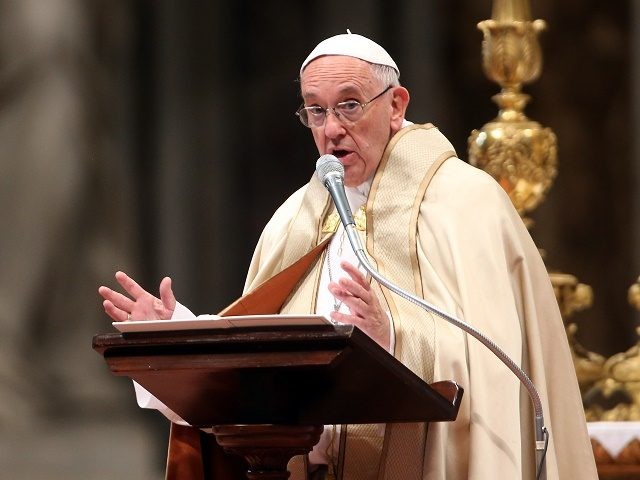Pope Francis has urged Christians to a change in attitude regarding immigration, because failing to welcome migrants is rooted in selfishness and fueled by “populist rhetoric.”
Speaking to participants in a conference on “Migration and Peace” in the Vatican Tuesday, Francis said that “accessible and secure humanitarian channels” are needed for migrants fleeing from “conflicts and terrible persecutions.”
“More widespread programs of welcome,” he said, “seem to favor a personal encounter and allow for greater quality of service and increased guarantees of success.”
On the same day, the President of the European Parliament, Antonio Tajani warned that if Africa’s problems of drought and malnutrition are not dealt with quickly and effectively, “we will have millions and millions of Africans” pushing to enter Europe and dams and walls will not be sufficient to hold them back.
A true change of heart is needed, the Pope said, because the rejection of migrants is “rooted ultimately in self-centeredness and amplified by populist rhetoric.”
To combat this trend, we must “overcome indifference” and “counter fears with a generous approach of welcoming those who knock at our doors,” he said.
Francis expressed his conviction that in the majority of cases migration today is forced, “caused by conflict, natural disasters, persecution, climate change, violence, extreme poverty and inhumane living conditions.”
The Pope’s reference to populism fanning the flames of rejection echoes recent comments by the Vatican Secretary of State, Cardinal Pietro Parolin, who said that the Holy See is worried about the rise of international populist and nationalist movements.
In an interview last week broadcast on the Italian evening news, Cardinal Parolin was asked whether the Vatican is concerned about what the interviewer called “the spread of nationalism and populism not only in Europe but also in the United States with Donald Trump.”
“I think so, I think so,” Parolin said. “Certainly these closings are not a good sign,” since many of them “are born of fear, which is not a good counsellor.”
The Cardinal also recalled recent comments by Pope Francis, saying that “there is a risk of history repeating itself.”
In a lengthy interview with the Spanish daily El País in late January, Pope Francis was asked whether he was worried about the spread of a populism that capitalizes on “people’s fears,” preaching “a message of hate.”
In his reply, Francis distinguished between a grassroots populism, where it is the people who are “the protagonists,” and a cult of personality where a charismatic figure like Hitler rises to power and is welcomed as a savior figure.
“For me the most typical example of populism in the European sense is the Germany of 1933,” Francis said. After Hindenburg, “Germany tries to get back up, searches for its identity, looks for a leader, someone to give it back its identity and a youngster named Adolf Hitler says, ‘I can do it; I can do it.’”
Whereas the first sort of populism is a good thing, the latter can be very dangerous, he said.
The risk, Francis said, is that in times of crisis we lack judgment and people can begin to think, “Let’s look for a savior who gives us back our identity and let’s defend ourselves with walls, barbed-wire, whatever, from other people that may rob us of our identity.”
“And that is a very serious thing,” he said. “That is why I always try to say: talk among yourselves, talk to one another.”
Follow Thomas D. Williams on Twitter Follow @tdwilliamsrome

COMMENTS
Please let us know if you're having issues with commenting.